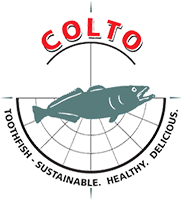“WE DON’T HAVE a population in South Georgia, only a small team of scientists who live on the island,” says Harriet Hall, Director of Fisheries for the Government of South Georgia and the South Sandwich Islands. As a result, this remote Overseas Territory of the United Kingdom has no industry and no income tax to generate revenue for government projects – including marine conservation. “The toothfish fishery is our main source of income,” Hall adds, “so the money from that is the major thing that helps protect the environment.”
Licence fees charged to the ten deep-water longline vessels harvesting Patagonian toothfish are ploughed back into fisheries research and protection, helping to preserve a vital resource. Last year, the territory’s total revenue was £4.9m (up from £670,000 in 1994) and 80 to 90 per cent of it came from fishing. Hall says “roughly that amount” is spent on research and policing.
“The key message is that, without this fishery which the MSC has certified, we wouldn’t be able to afford the research, the surveillance and the control,” Hall warns – “and without that, there would be an environmental disaster.”
What she is alluding to is the well-known and relatively widespread problem of unregulated and illegal fishing of Patagonian toothfish in some parts of the Southern Ocean. Such activities have not only decimated the species itself but led to significant levels of seabird bycatch.
As the only MSC-certified Patagonian toothfish fishery, how is this one different? “Quotas are set by CCAMLR [the Convention on the Conservation of Antarctic Marine Living Resources], so a lot of science goes into that,” Hall says. “We have a full-time patrol ship, well-trained fishery officers and very effective legislation – so if anyone is fishing when they shouldn’t be, we can take action.” To reduce bird bycatch, vessels fish only in winter (when birds are not breeding, so there is less pressure on them to feed) and only at night when fewer are flying. “Bait has to be thawed so it sinks quickly,” Hall says, “and there are line-weighting regimes to achieve the same effect on those.”
As a result, the MSC assessment report notes, seabird bycatch in the licenced fishery has been reduced to negligible levels. In the 2001-2002 season, for instance, only six birds were reported to have been killed.
Creating closed areas
All of this pre-dated certification – but have any improvements happened as a result of it? Hall cites condition 10 of the MSC certification report, requiring the fishery to direct research “at locating areas of complex benthic habitat” such as deep coral areas. Longlining, while regarded as a relatively low-impact fishing method where seabed habitats are concerned, could still potentially damage them. “If such areas are found, efforts to protect these should be considered and results documented,” the MSC report suggests.
“We went further than considering and documenting,” Hall stresses. “There were three deep coral areas in particular that needed protection, so we closed them off to fishing vessels completely. We exceeded our condition there.”
Traceability requirement provides biggest environmental gain
The main environmental gain, however, has come as a result of the auditing required for Chain of Custody certification – an assurance that every product with the MSC logo is fully traceable. “We now insist that all catch is weighed box by box, under our control in the Falkland Islands,” says Hall. “All vessels in the MSC programme bar-code every single box of fish as it is produced on board, and that is audited and checked by us. We know, to the nearest few kilos, exactly what has been caught in a year – and that has helped us to measure the stock better. We know vessels are fishing to their exact quota.”
Raising revenue for conservation
While the fishing companies have gained new customers (such as Whole Foods Market in the US) as a result of certification, crucial revenue has been raised for fisheries conservation. “From our point of view,” Hall says, “the government gets the license value – and we have been able to maintain the value of those licenses. I think the MSC certification has helped us to do that.”
